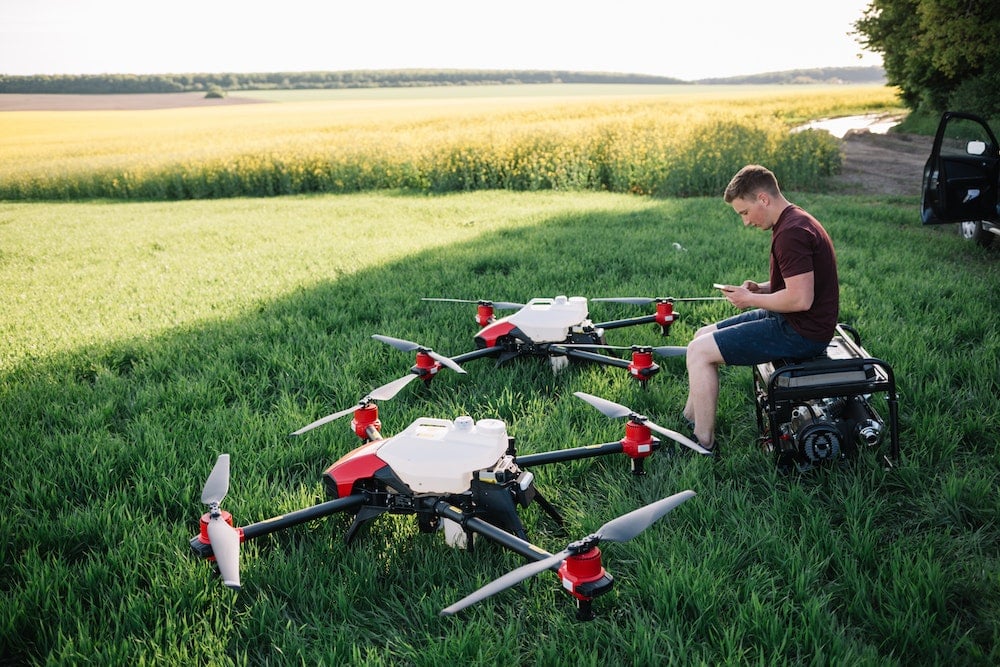Agriculture has been a backbone of the UK’s economy for decades, with countless farmers working tirelessly on their land to produce a variety of crops. However, with the growing need for more sustainable farming practices and increasing food demands, the agricultural industry is under immense pressure to adapt. That’s where precision agriculture comes in, a new approach that uses technology to enhance crop yields and streamline farming operations. By applying data, advanced sensors, and technologies, precision farming is revolutionizing agriculture and paving the way for a more sustainable future.
The Concepts and Applications of Precision Agriculture
Precision agriculture, also known as precision farming, is an increasingly popular management strategy in the farming industry. By utilising advanced technologies, such as GPS, remote sensing, and on-farm sensors, this approach allows farmers to monitor and optimize their crop yields and soil management.
A lire également : What Are the Best Strategies to Develop UK-Based Esports Talent and Teams?
In essence, precision agriculture is all about making the most out of farm data. By collecting and analysing data on everything from soil conditions to crop health, farmers can make more informed decisions about their operations. This means they can apply the right amount of water, fertilizers, and pesticides at the right time, reducing waste and increasing crop yields.
The applications of precision agriculture are manifold. For instance, soil sensors can provide real-time data on soil moisture and nutrient levels, enabling farmers to tailor their irrigation and fertilization strategies. Similarly, GPS technologies can help farmers plan their fields more efficiently, decreasing the time and resources needed for tasks like planting and harvesting.
Cela peut vous intéresser : How to Use Geo-Targeted Ads to Drive In-Store Traffic for UK Retailers?
The Role of Data in Precision Farming
In precision farming, data is king. It’s the lifeblood of this approach, informing all decisions and strategies. From soil composition to crop health, every facet of a farm’s operations can be monitored and optimized using data.
One of the most valuable sources of data in precision farming is the soil. With advanced soil sensors, farmers can gather detailed information about the soil’s moisture, nutrient levels, and pH value. This data can then be used to create accurate soil maps, which can guide decisions about irrigation and fertilization.
Water management is another area where data can make a big difference. By monitoring weather patterns and soil moisture levels, farmers can ensure their crops get just the right amount of water. This not only prevents overwatering and runoff but also saves resources and increases crop yields.
Technological Innovations in Precision Agriculture
Technology is the driving force behind precision agriculture. From sophisticated sensors to advanced software systems, various technologies are helping farmers optimize their operations and boost their crop yields.
One of the most significant innovations in this field is the use of remote sensing technologies. These include drones and satellites, which can capture high-resolution images of farms. These images can provide invaluable insights into crop health, allowing farmers to detect diseases or pests early and respond promptly.
Another groundbreaking innovation is the use of machine learning algorithms. These algorithms can analyze large amounts of farm data, identifying patterns and trends that would be impossible for humans to spot. This can help farmers predict crop yields, streamline their operations, and make more informed decisions.
The Future of Precision Agriculture
Given the profound impact of precision agriculture on farming practices and crop yields, it’s clear this technology-driven approach is here to stay. As the need for sustainable and efficient farming practices continues to grow, so too will the adoption of precision agriculture.
Looking ahead, the future of precision agriculture lies in the integration of various technologies. Picture a farming system where soil sensors, drones, and machine learning algorithms work together, providing farmers with a comprehensive overview of their operations.
Another promising trend is the increasing democratization of precision agriculture. Advances in technology are making these systems more affordable and accessible, allowing more farmers to reap the benefits of precision farming.
In summary, precision agriculture has the potential to revolutionize the way farming is done in the UK. By harnessing data, advanced sensors, and technologies, farmers can boost their crop yields, streamline their operations, and contribute to a more sustainable future. With these benefits, it’s clear that precision agriculture is not just a trend, but a transformational force in the agricultural industry.
The Impact of Precision Agriculture on the UK Farming Market
The impact of precision agriculture on the UK farming market is substantial. As per reports, it’s poised to boost the market size by increasing crop yields, transforming farming techniques and leading to more sustainable and efficient farming practices. The farming market in the UK, traditionally known for its reliance on conventional methods, is gradually shifting towards data-driven farming. As per a forecast market report, the adoption of precision farming technologies is expected to rise significantly in the coming years.
The use of real-time data derived from advanced sensors and technologies is enabling farmers to make informed decisions about their crops. This includes the amount of water and nutrients required by a particular crop, the best time for planting and harvesting, and detecting pests and diseases early.
Furthermore, the integration of machine learning and big data in precision farming is helping farmers predict variable rate of crop yield based on various factors such as soil moisture, soil nutrient levels, weather patterns and crop health. These predictions are assisting farmers in planning their crop production more effectively, which in turn is leading to a substantial increase in crop yields.
More importantly, precision agriculture is making farming more sustainable. By optimising the use of resources such as water and fertilisers, it’s reducing waste and minimising the environmental impact of farming. This shift towards smart farming is not only beneficial for farmers but also for the overall health of the UK’s farming market.
Conclusion: The Potential of Precision Agriculture in the UK
In conclusion, precision agriculture holds immense potential for the UK farming market. With technological advancements and the rise of data management systems, farming is undergoing a significant transformation. The power of real-time data, combined with machine learning and big data, is propelling the farming market to new heights.
The marked increase in crop yields, the optimisation of resources, and the ability to make informed decisions based on real-time data are some of the key benefits of precision farming. In a world that is increasingly leaning towards sustainability, precision agriculture is paving the way for a more environmentally friendly approach to farming.
Moreover, as technology becomes more accessible and affordable, precision agriculture is becoming more democratised. This means more farmers, irrespective of the size of their farms, can utilise these advanced farming techniques and boost their productivity.
As per numerous studies available on Google Scholar, precision agriculture is not just a passing trend. It’s a transformational force that is set to redefine the UK’s farming market. By taking advantage of these advanced techniques and technologies, UK farmers can significantly boost their crop yields, make their operations more efficient, and contribute to a more sustainable future. Therefore, the future of farming in the UK undeniably lies in precision agriculture.











